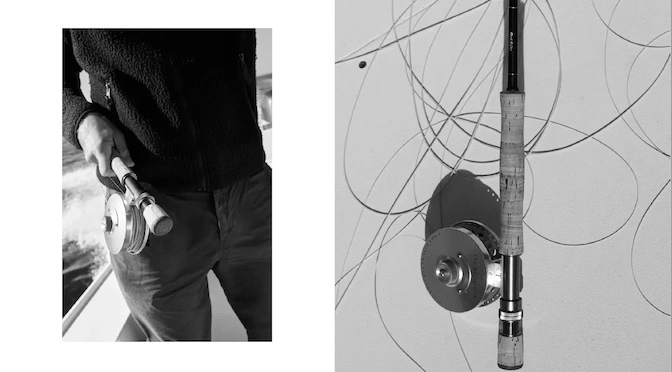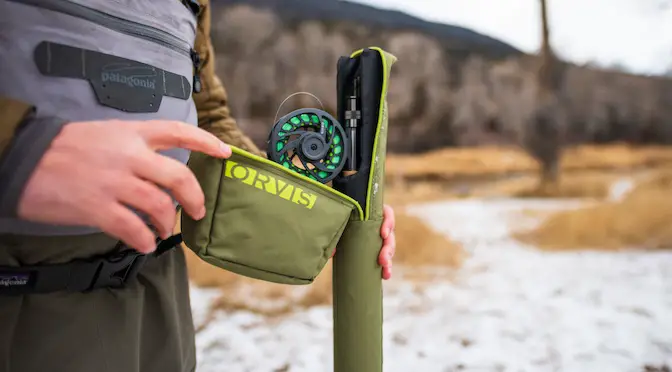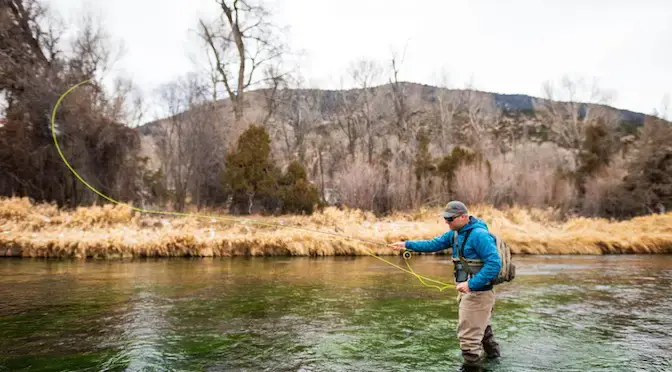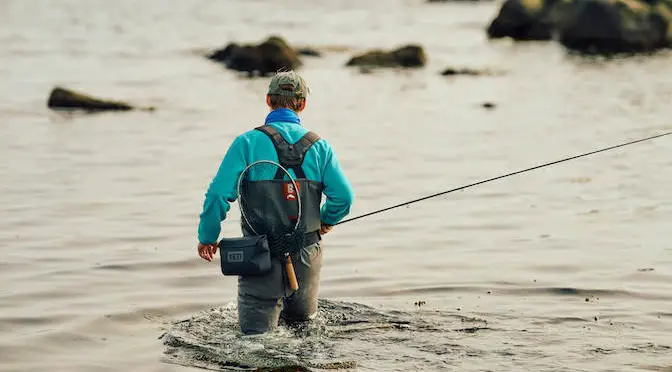Last updated on January 15th, 2024.
- Leadership and the Art of Presenting an Atlantic Salmon Fly - February 15, 2019
- What Fly Fishing has taught me about life and business – Part III - February 20, 2018
- What Fly Fishing has taught me about life and business – Part II - February 9, 2018
I have just returned from several days of fly fishing. And, as is always the case when I am away, I thought … a lot.
Fly fishing serves that purpose for me. It’s an escape from the daily routine that transports me to a totally different place – physically and mentally. It’s a respite from the busy work-a-day world and it provides me time and space to slow down, relax and reflect.
To be successful as a fly fisher you need to be in the moment, focused attentively on your fly passing across the water and always anticipating the subtle take by a fish. Sounds easy enough, right? As any hard core fly fishing enthusiast knows, there is always a lot more time spent fishing than ever there is catching and consequently, just as with any meditation practice, there can be a tendency for the mind to drift. But that’s what I love about the sport … both trying to stay focused while at the same time appreciating that the mind will occasionally drift at times. By accepting that this is ok though, when the mind does drift, you can simply smile and bring the mind back to the task at hand. When the fishing is particularly poor though, it provides a wonderful opportunity to work things through in one’s own mind and it has certainly served me well in this regard over the years.
Fly fishing is my alone time and I appreciate the quiet and allow myself to relax fully. I contemplate life, I take stock of all of the positive things happening in my life and invariably, I face and work through the more challenging issues of the moment. All the while doing so largely in silence. It’s awesome. On this most recent trip, I reflected on my lifelong passion for fly fishing and how the hobby itself has served to teach me a lot. And I thought it would be valuable to share these learnings and perspectives with other fly fishing enthusiasts and those who appreciate the journey of learning.
1. Success in fly fishing involves a lot of old fashioned hard work.
To be a successful fly fisher (if measured by the number of fish you actually catch) one must, above all else, be patient and determined. The Atlantic Salmon has been referred to as “the fish of a 1000 casts” and for good reason. It is not unusual to fish for several days in a row and not hook a single fish and I have even gone through entire seasons doing so. You don’t have to be the best technical fly fisher in the world to catch fish but you do have to keep up the effort of casting your line to stand a chance. The parallels of this for me to real life are obvious and within my own life and career I would say that anything I accomplished was more borne out of hard work than ever it was raw intelligence. As such, I firmly believe that work ethic is more important than being a genius. I say this partly because I am only an average smart person and also because I believe that our intellectual capacity is largely determined at birth and based on genetics to a an extent. In other words, natural smarts are not entirely within our control. However, we most certainly have control over the level of effort that we can choose to put into our work and family and the proof points of such hard work in my own case are both real and measurable.
2. You can’t catch a fish if your fly is not in the water.
There was a local lottery that once had a marketing campaign that said “you can’t win if you don’t play” and that has always stuck with me. The same holds true for fly fishing and I can guarantee you with 100% certainty that you will not catch a fish unless your fly is actually in the water. I always remember this when fly fishing and it provides me with great motivation to keep casting, always with the potential to catch a fish. Even when I am tired and I want to take a break on the bench on the river bank, I recite the “you can’t win if you don’t play” mantra in my head and I keep casting. As with life, and especially in business, it is only through sheer determination and perseverance sometimes that you can accomplish what you set out to do. So find your own mantra, keep repeating it in your mind and resist the temptation to stop working to achieve your goals.
3. Know when to let the fish run and when to hold it.
As highlighted above there are many aspects of fly fishing which make it a challenging hobby to be consistently good at. Much like the game of golf, but somewhat harder because there is a fish involved, I think that very few people actually ever do reach a point of mastery of the sport. Once you have learned the fundamentals of casting however, you can work away at it and over time, getting better and better at throwing the line and having your fly land where you want it. The next challenge then becomes how to actually hook, play, land and release a fish. When you hook an Atlantic Salmon the natural reaction for a rookie is to grab the reel and hold on. Unfortunately that is really the polar opposite of what you need to do. You have to respect the fish and the power it has. It will take your fly and then the moment it realizes that it has been hooked it will use all of its power to be free of it. It will jump, it will run away from you and it will run towards you. You have to learn how to play the fish, when to let it run (using the drag of the reel or the palm of your hand on the reel), when to reel vigorously to keep a tight line and when to simply hold the fish, pitting you against the fish to see who may flinch first.
When the fish takes a fly, that is arguably one of the most exhilarating parts of the entire fly fishing process, but learning to play the fish is rewarding and can teach us a lot about life itself. Life has the ability to pull and tug on us in much a same way as a salmon and knowing when to let it run versus knowing when to take control and dictate an outcome is a crucial skill to develop. It boils down to finding a healthy balance. As with fly fishing this gets easier to do with the wisdom of age and experience but even young people can develop this ability by simply accepting that the tension that exists in living. We can control aspects of life and then there are instances where life will be unpredictable and that is often when we learn most about ourselves and those around us.
Read part two of “What Fly Fishing has taught me about life and business” soon on The Wading List.






